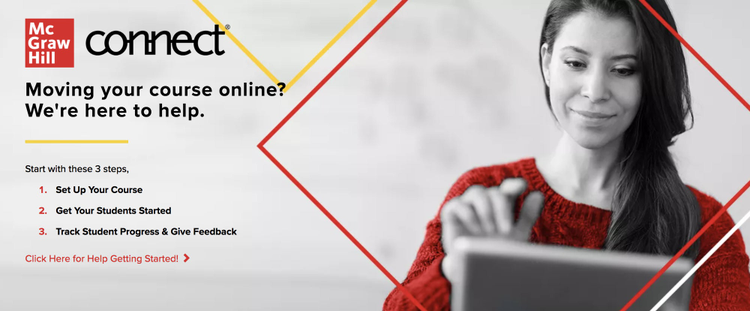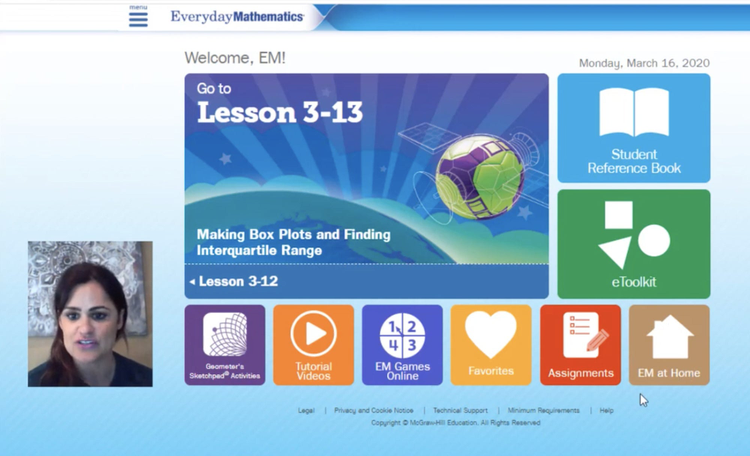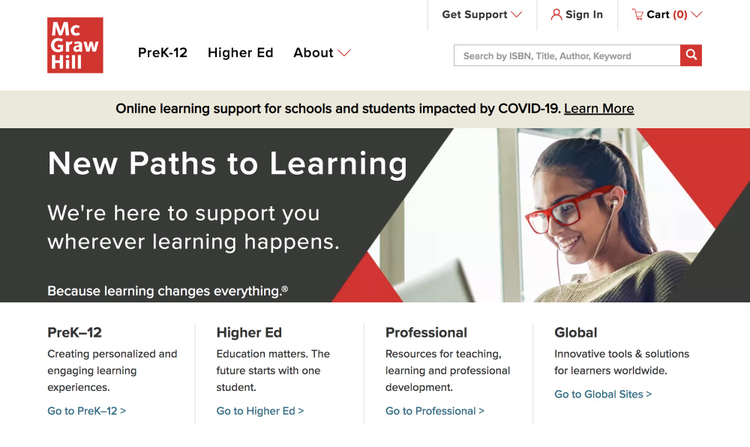How McGraw Hill worked with Adobe Experience Cloud to deliver online learning experiences

COVID-19 has changed many aspects of our everyday lives, including how we work and how we learn. As school closures began across the country, and students were transitioned to remote and distance learning, many educators had to rescope their lesson plans and integrate technology to teach and engage their students remotely (sometimes in as little as 24 hours).
Learning science company McGraw Hill, which serves school districts and students from pre-K through higher education, was able to step up in a matter of days to deliver impactful online learning support.
As a 130-year-old company, McGraw Hill has remained one of the largest producers of education materials by being adaptable and innovative. Working with Adobe Experience Cloud apps including Marketo Engage, Adobe Target, Adobe Experience Manager and Adobe Analytics, has enabled them to be a resource amid the switch to digital-first learning.
Targeted marketing outreach
McGraw Hill worked with Marketo Engage and Adobe Target to deliver more targeted, personalized messaging to educators and students. As the need for remote learning increased, they stood up customer and community support sites that have been visited by hundreds of thousands of individuals. In addition, they executed tailored omnichannel communications, offered free access to instructional materials and platforms to set up classes online, and offered tips and online trainings to make the transition to distance learning easier.

Image source: mheducation.com.
They were also able to spread the word through social media, reaching not only schools but parents as well. For example, recent posts on Pinterest provided tips on fun educational activities parents could do with their kids (such as building toys out of materials at home, to unlock creativity).
The website and marketing communications that Adobe apps facilitated enabled McGraw Hill to respond in a short amount of time, sharing resources within the first week of school closures. Data through Abobe Analytics helped them quickly evolve as the landscape of education transformed.
Supporting a new normal for learning
For educators, the challenge of transitioning their lesson plans from physical classrooms to online was no simple task. Most had to figure out how to leverage new technologies such as video conferencing to create interactive experiences. To help higher-education instructors navigate the change, McGraw Hill worked to set up 4,000 custom courses for educators. The company also arranged general and discipline-specific webinars, covering topics such as “how to move a course online.”
The webinars are available on demand and have been viewed over 200,000 times. Using Adobe Experience Manager has helped the company manage its content and website assets, so McGraw Hill could distribute content that is relevant and easy to use.
Having a fast, well-organized website has also helped, as the site has taken the place of many interactions that used to be offline—including service, training, and support.

Image source: mheducation.com.
McGraw Hill anticipated that the new resources they provided to customers would also increase customer support requests. Luckily, the company had worked with Adobe on new processes and technologies to improve the customer experience. Response times for customer support used to take up to 36 hours and have now decreased to 6-8 hours. Even as McGraw Hill transitioned their own customer support teams to be entirely remote, the company was still able to provide seamless customer support with minimal delays or interruptions.
McGraw Hill’s customers often do not think they need training on their tools, but with the updated customer service capabilities provided by Adobe, McGraw Hill has been able to call people multiple times to find out how they are doing. This high-touch customer service approach surprised people and has made them more comfortable.
According to Stacy Hansbury, vice president of customer experience for McGraw Hill: “Our digital transformation journey gave us incredible resiliency when the world around us became much less certain. We were able to support our community digitally in a time of great need, while also ensuring that we maintained business continuity. Throughout all of this, we have leaned on Adobe Experience Cloud as our technology partner to deliver and measure great customer experiences. Adobe is enabling us to share relevant content with school employees and parents – and we can be confident that they are receiving what they need in a timely manner.”

Image source: mheducation.com.
Reaching new audiences
While McGraw Hill’s goal has been to help students and the people teaching them, offering resources has helped build loyalty among repeat customers and drive new users to the website. 20% of the users they are now serving had not been using McGraw Hill products, yet the company has been able to quickly find the closest product to fit what they were teaching and build starter courses.
Adobe Analytics helps the company analyze the effectiveness of their activities so they can optimize their new virtual learning efforts. As they continue helping schools pivot to remote learning, they are gathering data and customer feedback and using it to strategize enhancing the experience further.
Setting up for digital learning success
Even before McGraw Hill had to pivot to virtual learning, they were set up for digital success with Adobe Experience Cloud apps. Seeing an increase of over 112% in web engagement for instance, allowed them to quickly evolve and ensure a continued focus on customers—both existing and new.
While the extent of the challenges brought about by COVID-19 are still unknown, McGraw Hill knows that digital learning will continue to play a pivotal role in the future of education. The company continues to evolve their digital services to meet the changing needs of the educators, students and parents they serve. Making quick tweaks to provide the best experience.
What’s most important to McGraw Hill is that COVID-19 does not impact what students can achieve. With the flexibility powered by Adobe, they have a solid framework in place to continue to address the needs of virtual learning, pivot as needed, and leave students prepared for higher education and their future careers.